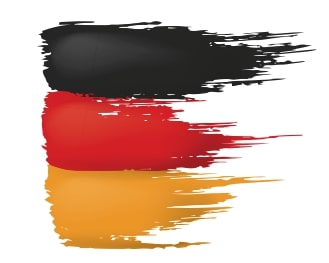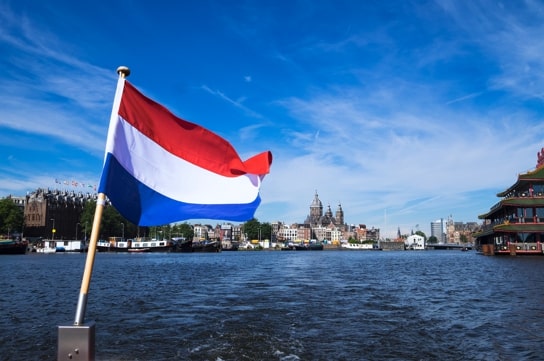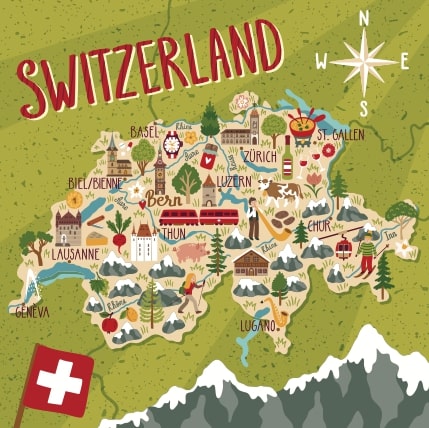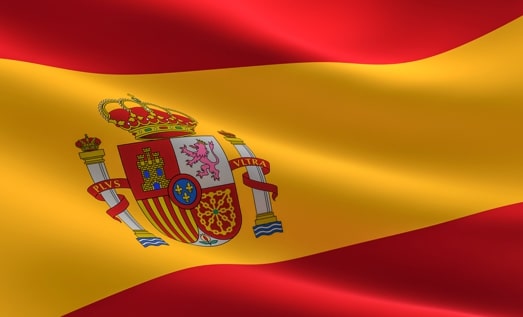Apart from the United States, other top destinations for pursuing an MBA are Europe, Canada, Australia, and New Zealand. What makes these destinations popular are the employment opportunities available. However, working after MBA in these countries requires you to jump through visa hoops. In this article, we discuss the visa and immigration formalities of these top MBA destinations.
- Working after MBA in the UK| Work permit after MBA
- Working after MBA in France
- Working after MBA in Germany
- Working after MBA in the Netherlands
- Working after MBA in Switzerland
- Working after MBA in Spain
- Working after MBA in Canada | Work permit after MBA
- Working after MBA in Australia
- Working after MBA in New Zealand
Take a look at the article on 3 ways on working after MBA in the US
Working after MBA in the UK – Work Permit after MBA
As an international student, if you don’t hold an EEA (European Economic Area) or a Swiss passport, you’ll have to apply for a visa to study and work in the UK. To study in the UK, please apply for a Tier 4 UK study visa.
The UK government just reintroduced the post-study work (PSW) visa which now allows students to stay back in the UK for 2 years after graduating. More details.
Student Visa for the United Kingdom

Tier 4 UK study visa
You’ll need the Confirmation of Acceptance for Studies (CAS) letter from your university to apply for this visa. You must also prove that you have the necessary funds to support your study, which is GBP 11,385 plus the GBP 150 health care fee.
International students can now stay back in the UK for two years and find employment after graduating. Currently, international students were only allowed to stay back for four months. Know more about the UK’s new post study work visa
You can work part-time during your studies for not more than 20 hours per week and full-time when the school is not in session. To know more detailed information on UK study visas, visit the UKVI website.
Once you have completed your MBA in the UK, you can apply for the Tier 2 sponsored visa provided that you secure a job with a Tier 2 licensed company.
Here is a detailed article on class profiles and career prospects of London Business School
Post-MBA work visa for the UK
Tier 2 work visa
Once you graduate from a full-time MBA, you are exempted from the Resident Labour Market Test. However, you’ll have to apply for the Tier 2 work visa. You also need to be employed by a licensed sponsor.
During this time, you can:
- work in the job described in your certificate of sponsorship
- study as long as it does not interfere with the job you’re sponsored for
- do a second job in certain circumstances
- do voluntary work
- travel abroad and return to the UK
- bring family members with you
However, you cannot
- own more than 10% of your sponsor’s shares (unless you earn more than £159,600 a year)
- get public funds
- apply for a second job until you’ve started working for your sponsor
There is one more way to live and work in the UK after graduating i.e. if you choose to set up your own business. For that, you’ll need to apply for a Tier 1 Graduate Entrepreneur visa.
Tier 1 Graduate Entrepreneur Visa
To apply for this visa, you need to have at least GBP 50,000 in investment funds. Most UK Business Schools offer assistance to their MBA graduates. For example, London Business School endorses up to 40 Tier 1 graduate entrepreneur visas every year.
Before joining your UK business school, get in touch with its admissions office as early as possible to make the process as smooth as possible.
A 730+ GMAT score increases your chance of studying at a European business school. We can help you with quality online content to prepare. We are the most reviewed GMAT prep company on gmatclub with more than 2000 reviews.
Why don’t you take a free trial and judge for yourself? Write to us at acethegmat@e-gmat.com in case of any query.
Working after MBA in France
Student visa for France
Some top business schools like INSEAD and HEC make France a popular destination for international MBA students. As a student, you would have to apply for the ‘Visa de long séjour etudes’ or the ‘Long-stay visa (residence permit – VLT-TS).

With this visa, you are allowed to work for 964 hours in a year as long as your studies are not affected. International students are eligible for minimum wages prevalent in the country.
Post-MBA work visa for France
Once you have earned your MBA, you can apply for APS (authorization Provisoire de séjour). This is a one-time and a non-renewable temporary residency authorization and is valid for 12 months. As of 2015, Indian students are allowed to work for up to 24 months under the ASP.
Working after MBA in Germany
Student visa for Germany
There are three types of visas meant for people intending to pursue educational activities in Germany:
- Language Course Visa (Visa for Language Learning) – for educational activities lasting from 3 months up to 1 year, for the purpose of participating in short German language courses.
- Student Applicant Visa (Visum Zur Studienbewerbung) – if you want to study in Germany, but are still trying to find the right program or you still haven’t got a confirmation letter from your University
- Student Visa (Visum Zu Studienzwecken) – if you have already been accepted to a German university.

Post-MBA work visa for Germany
As a student, you are allowed to work for up to 120 full days or 240 half-days.
Non-EU students have to apply for a German residence visa for studying for pursuing an MBA. The visa allows them to complete their course and grants them an additional 18 months to find employment and work.
EU Blue card
Once you start working in Germany, you can apply for the EU Blue Card provided you have a minimum gross salary of EUR 56,800 and in case you belong to the ‘professions in shortage’ category (mathematics, IT, natural sciences, engineering, and human medicine) your minimum annual gross salary must be EUR 44,304.
You can get a Permanent Residency (PR) in Germany after
- 33 months of being an EU Blue Cardholder
OR
- 21 months, if you have B1 level proficiency in German
However, knowledge of German is essential to successfully finding a job.
Working after MBA in the Netherlands

Student visa for the Netherlands
To study in the Netherlands, you’ll have to apply for the ‘Provisional Residence Permit’ or the ‘MVV’. Once you reach the Netherlands, you’ll receive a ‘Residence Permit’ which will allow you to stay for as long as the duration of your program plus 3 months for the university’s administrative processes.
Post-MBA work visa for the Netherlands
Zoekjaar (Orientation year visa)
If you plan to stay and work in the Netherlands after your graduation, you’ll have to apply for ‘Zoekjaar’ or the ‘Orientation year visa.’ It allows international students to look for jobs after the expiry of their student visa for 12 months.
Remember this is a non-renewable visa, so make sure you land a job within these 12 months.
Other visas that will help you to stay back and work in the Netherlands are ‘highly skilled migrant visa’ and ‘work permit.’
Highly skilled migrant visa
To be eligible for the highly skilled migrant visa:
- You must have a job in the Netherlands
- It pays EUR 3,229 gross per month if you are younger than 20 years
- It pays EUR 4,404 gross per month if you are 30 years or older
The duration of this visa is for as long as you are employed in the Netherlands.
Work Permit
To be eligible for the ‘work permit’ you’ll only have to find a job with a Dutch company that is registered with the IND (Immigration and Naturalisation Service)
Permanent Residency in the Netherlands
If you want to apply for the Dutch Permanent Residency then you must have spent a minimum of 5 continuous years in the Netherlands.
Working after MBA in Switzerland

Student visa for Switzerland
For an MBA you would require the ‘D visa.’ It is for courses that last longer than three months.
If you apply for a type D visa and plan to stay in Switzerland longer than three months, you will have to arrange to get your residence permit from the cantonal migration offices within 14 days after your arrival.
Post-MBA work visa for Switzerland
A non-EU student can apply for a residency extension after completion of the MBA program. This is a non-renewable permit and the duration is 6 months.
Once you find a Swiss employer, he/ she will apply for a ‘work permit’ on your behalf. The work permit is valid for as long as you are employed in Switzerland.
If you plan to apply for a permanent residency, you’ll have to spend a minimum of 10 years in Switzerland.
Working after MBA in Spain
Student visa for Spain
If you’re a non-EU student then you’ll need to get a student visa (type D) and a student’s residence permit/card or Foreigner Identity Card (TIE) within 30 days of your arrival in Spain from the local Foreigner’s Office.

You are allowed to work up to 20 hours a week during classes, as long as it doesn’t interfere with your studies.
The company that employs you will need to get a work permit for you from the Foreigner’s Office. Your employment contract cannot exceed the duration of the study visa.
Post-MBA work visa for Spain
However, there is no method to automatically grant a work permit to non-EU students once they have completed their MBA. Before getting a work permit, you need to get a job first. Your employer then has to prove that the job has been advertised but there were no suitable candidates from Spain or the EU.
After you obtain the work and residence permit with the help of your employer, you then can apply for a work visa
Working after MBA in Canada
Canada has a liberal policy when it comes to studying and working, if you wish to study in Canada, you will need to obtain a Canadian study permit.

Student visa for Canada
To apply for a study permit you can apply either online or on paper. It is always better to apply online as the process takes lesser time.
Post-MBA work visa for Canada
MBA graduates can receive a
- 3-year post-graduation work permit (PGWP) provided they have completed a 2-year full-time MBA program.
- If your program was between 8 months and 2 years, then you receive PGWP for as long as your course duration. For example, a 10-month program will make you eligible for a 10-month PGWP.
- If your program was less than eight months then you are not eligible for PGWP.
For more information, take a look at Canada’s immigration and citizenship website.
Watch this video where we highlight the top 5 reasons to pursue MBA in Canada:
Working after MBA in Australia

Student visa for Australia
Australia has a very simplified process to apply for a student visa under the simplified student visa framework (SSVF). You can log on to the Citizenship and Immigration website to apply for a Student visa (Subclass 500).
Post-MBA work visa in Australia
Once graduated, you can apply for the Temporary Graduate Subclass 485 visa which will allow you to work for 18 months in Australia.
For international MBA students to be eligible for the ‘485 visa’, they must have studied for at least 16 months in Australia. So, if you plan to pursue, a one-year MBA in Australia, getting this visa won’t be possible.
For more information on this visa, log on to Australia’s Immigration and Citizenship website.
Working after MBA in New Zealand
Student visa for New Zealand
You need a simple student visa to study full-time in New Zealand for longer than three months.
Post-MBA work visa for New Zealand
You can work in New Zealand for up to 3 years after completing your MBA. You can do that through Post Study Work Visa (Open) and Post Study Work Visa (Employer Assisted).
Post Study Work Visa (Open)
The Post Study Work Visa (Open) allows you to find a job that is relevant to your qualification. It’s valid for 12 months, and during this time you can work for almost any employer in New Zealand.
After you have found a job relevant to your qualification you can apply for a Post Study Work Visa (Employer Assisted).
Post Study Work Visa (Employer Assisted)
The Post Study Work Visa (Employer Assisted) allows you to stay in New Zealand and work for a specific employer for a further two years if your job is relevant to your qualification.
To be granted a visa, you must hold a Post Study Work Visa (Open) or apply no later than 3 months after the end date of your student visa.
However, from November 26, 2018, post-study work visas will change. Take a look at the NZ immigration website to know the changes.
Here are the visa and immigration policies of some of the top MBA destinations in the world. Working after MBA in these countries requires considerable effort. Therefore, before applying to business schools in these countries take a look at not only the employment opportunities but also the visa policies.
Write to us at acethegmat@e-gmat.com for any queries!
We can help you with quality online content to prepare. We are the most reviewed GMAT prep company on gmatclub with more than 2000 reviews. Why don’t you take a free trial and judge it for yourself? Write to us at acethegmat@e-gmat.com in case of any query.














